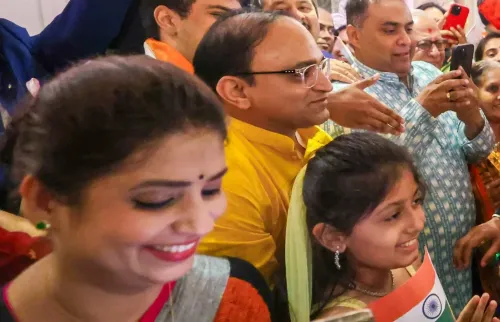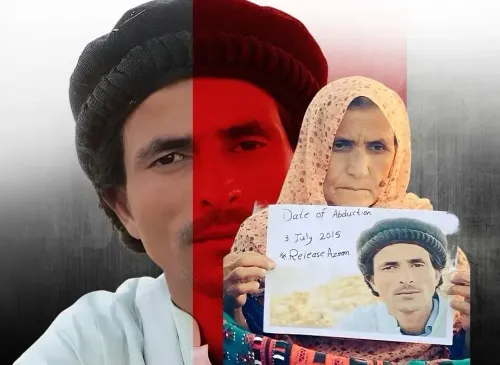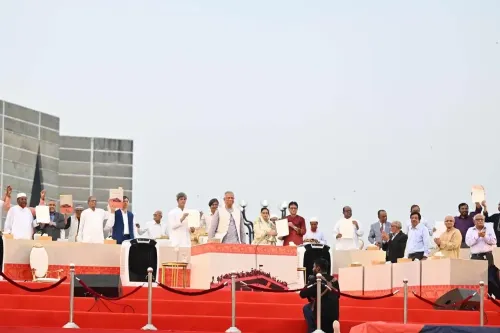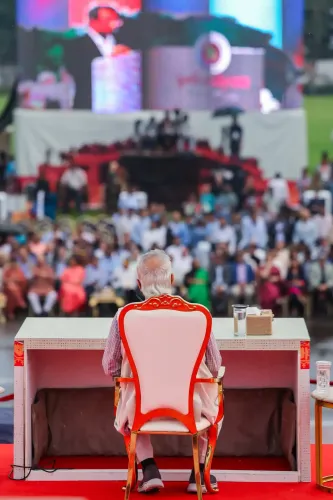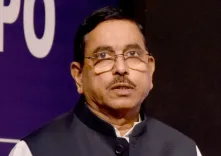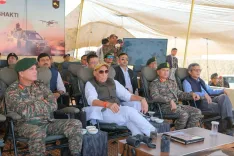Concerns Over Khalistani Extremism in New Zealand Raised in Modi-Luxon Talks
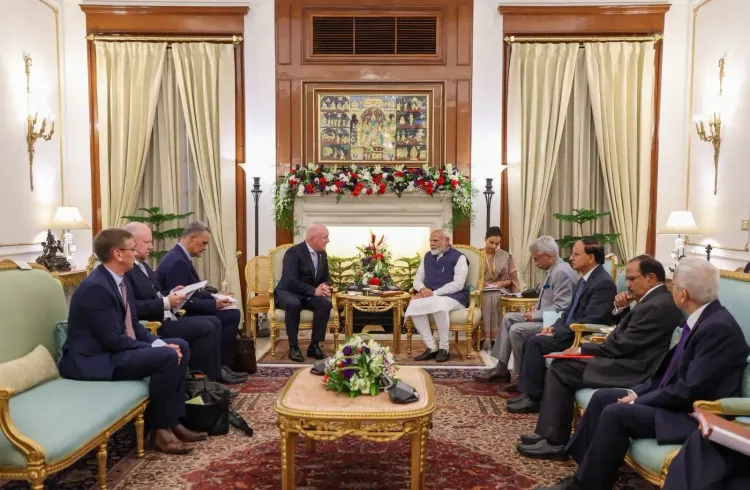
Synopsis
Key Takeaways
- India raised concerns about Khalistani groups in New Zealand.
- Bilateral discussions took place at Hyderabad House.
- Both leaders condemned terrorism in all forms.
- Emphasis on protecting the Indian community abroad.
- Collaboration against terrorism and extremism was agreed upon.
New Delhi, March 17 (NationPress) During a meeting on Monday, India brought attention to the presence of radical Khalistani groups in New Zealand, which are considered a threat to both diplomats and the broader Indian community residing there.
The topic emerged during discussions at the Hyderabad House with Prime Minister Narendra Modi and his New Zealand counterpart, Christopher Luxon, who is currently visiting India for five days.
"This issue was certainly discussed. We inform our allies about the activities of anti-India elements in their nations and how they misuse freedoms, such as free speech, to glorify terrorism and threaten our diplomats, parliament, and events in India. These concerns were communicated today. The New Zealand government has been responsive and has acknowledged our issues previously, and we received a similar reaction today," stated Jaideep Mazumdar, Secretary (East) at the Ministry of External Affairs (MEA), during a media briefing following the bilateral talks.
The Joint Statement from India and New Zealand later highlighted that both Prime Ministers discussed various regional and global developments of common interest while agreeing to enhance multilateral collaboration.
"Both leaders acknowledged the importance of ensuring the safety and security of the Indian community, including students in New Zealand, as well as New Zealanders in India and visitors to India," the statement noted.
Additionally, the two leaders reaffirmed their strong condemnation of terrorism in all its forms and the use of terrorist proxies in cross-border terrorism.
"They emphasized the urgent necessity for all nations to take immediate, sustained, measurable, and concrete actions against UN-designated terrorist organizations and individuals. They advocated for the disruption of terrorism financing networks and safe havens, dismantling terror infrastructure—both online and offline—and ensuring that perpetrators of terrorism are brought to justice promptly. The leaders agreed to collaborate in the fight against terrorism and violent extremism through both bilateral and multilateral means," the statement elaborated.
The US-based radical group Sikhs For Justice (SFJ), which has been banned, is attempting to advance its secessionist agenda in various nations, including Australia and New Zealand, by conducting a so-called "referendum" aimed at establishing an independent Sikh homeland. Last year, SFJ organized such events in and around Auckland, New Zealand's largest city.
The Pakistani intelligence agency ISI is reportedly backing this harmful campaign to create divisions along communal lines.
Indian security agencies have consistently alerted local law enforcement about the safety and security concerns for Indian nationals in countries where banned radical organizations associated with Pakistan and Khalistani elements are actively engaging in targeted propaganda.

